Layouts menu
The items in the Layouts menu set up the perspective and orthographic windows in various standard configurations.
These menu items arrange various view windows in standard layouts as described in the sections below. When using multiple view windows, you can adjust the proportion of the windows by dragging the divider.
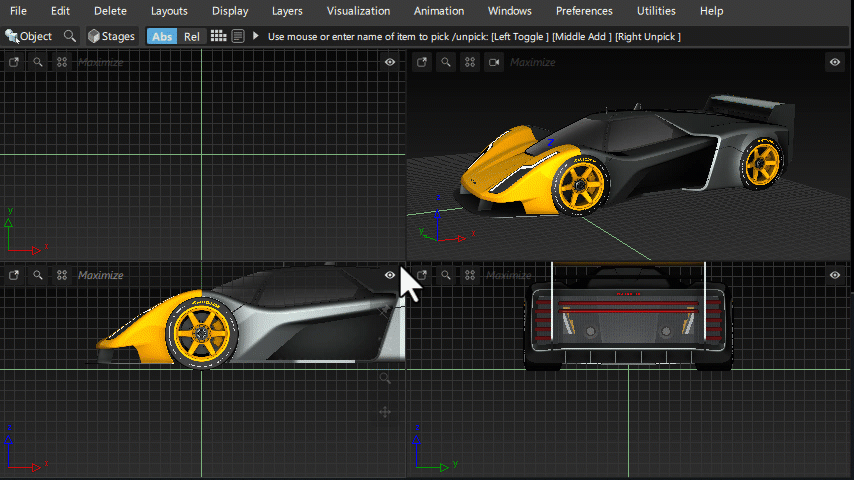
To switch between single and multiple views, select Layouts > Maximize/Minimize Window or press F10.
Single Pane
Loads the selected single pane layout. You can choose from the following:
Perspective
Lets you fill the screen with a Perspective view window.
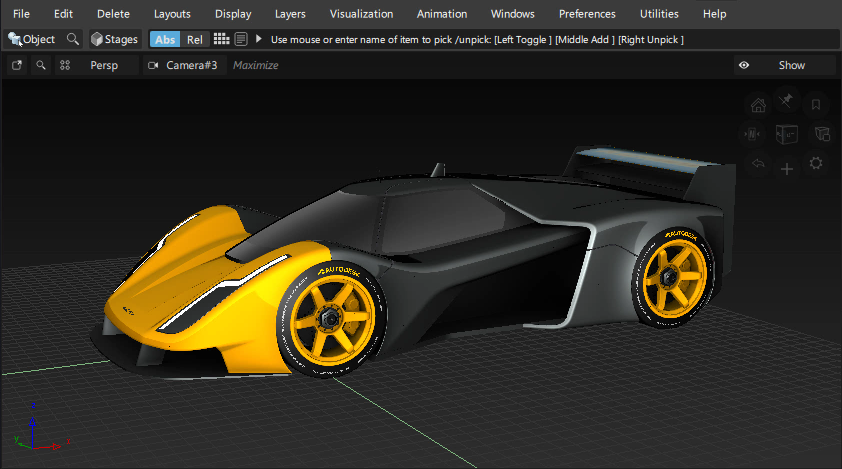
Front
Lets you fill the screen with a single Front view window. This window looks at the -Y, Z plane.
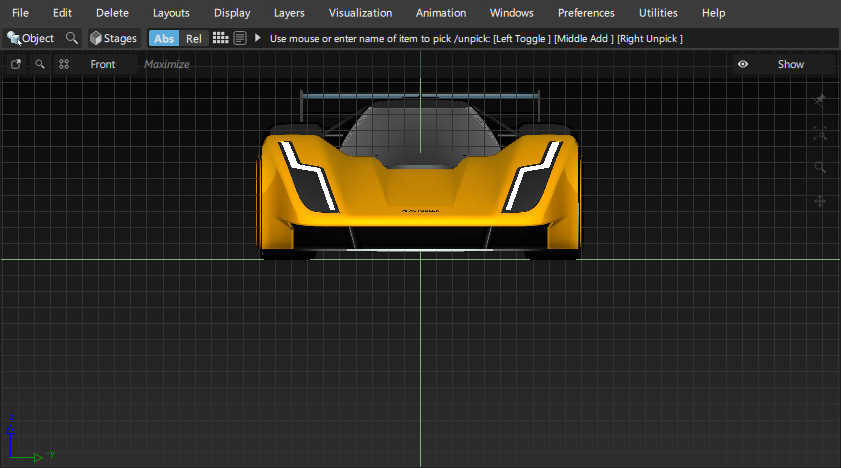
Back
Lets you fill the screen with a single Back view window. his window looks at the Y, Z plane.
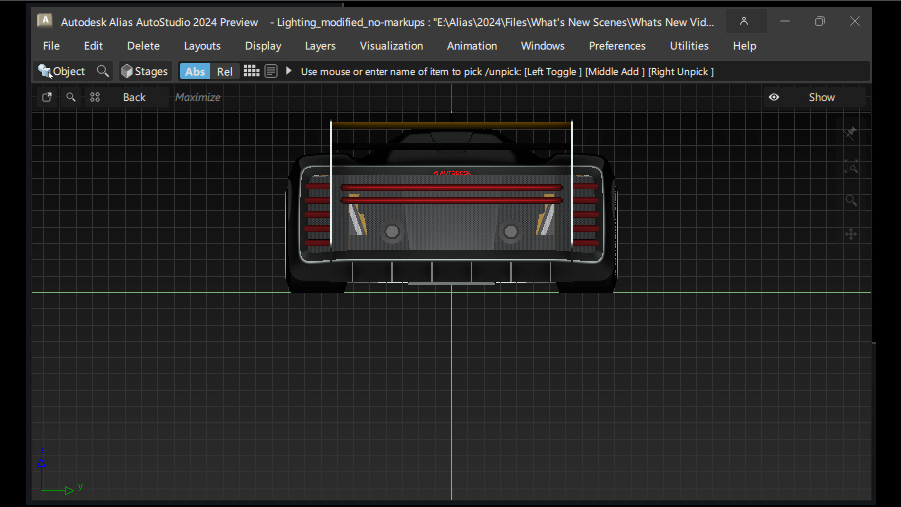
Right
Lets you fill the screen with a single Right view window.This window looks at the -X, Z plane.
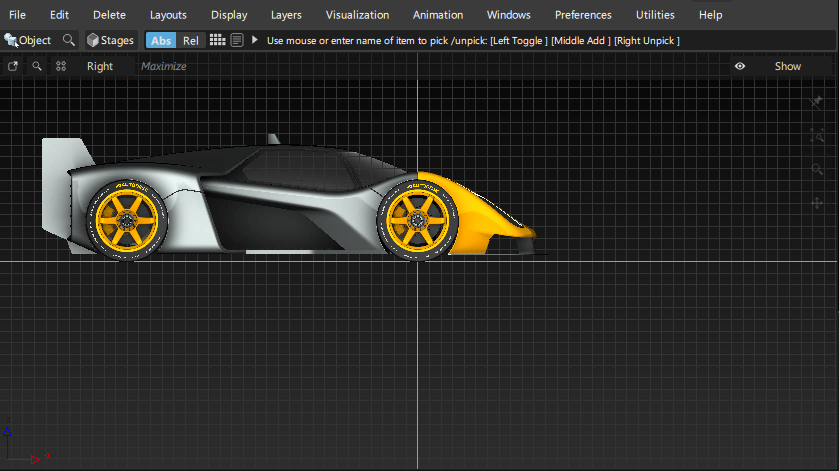
Left
Lets you fill the screen with a single Left view window. This window looks at the X, Z plane.
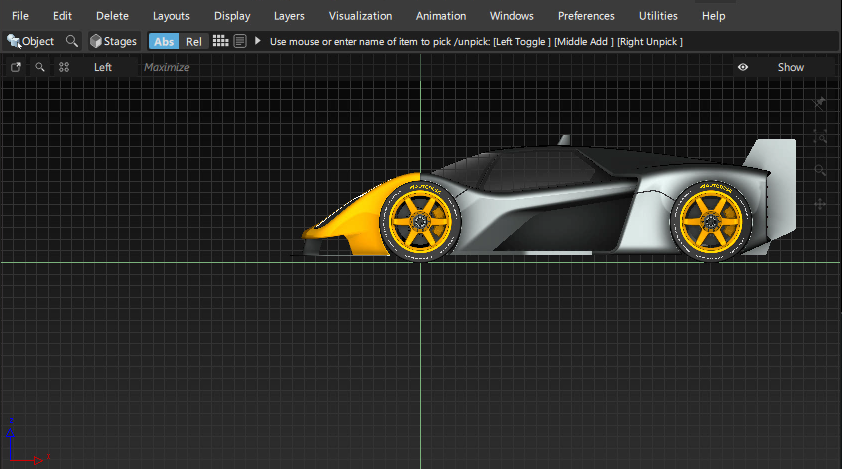
Top
Lets you fill the screen with a single Top view window. This window looks at the X, Y plane.
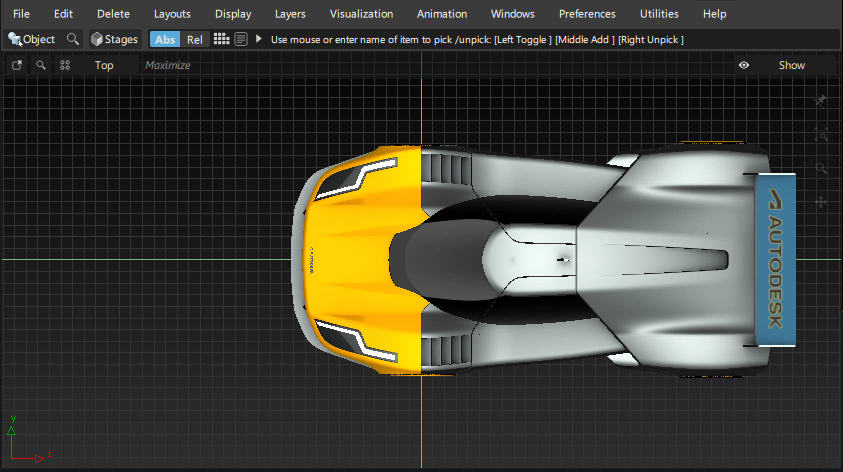
Bottom
Lets you fill the screen with a single Bottom view window. This window looks at the X, -Y plane.
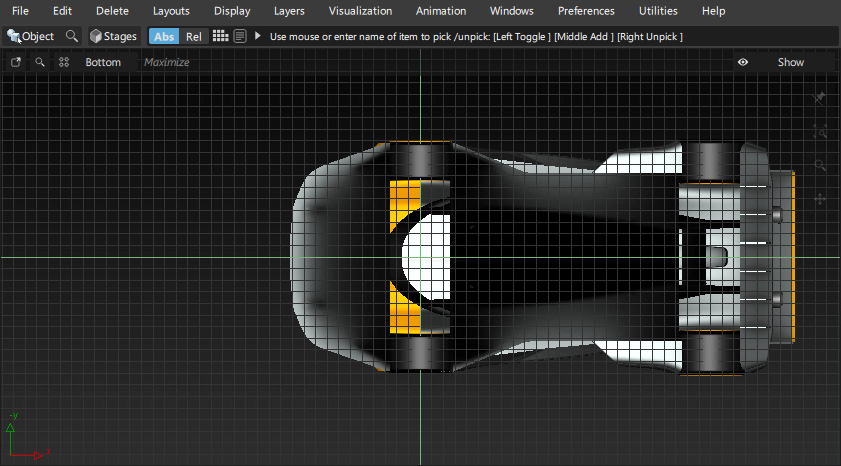
Two Panes Side by Side
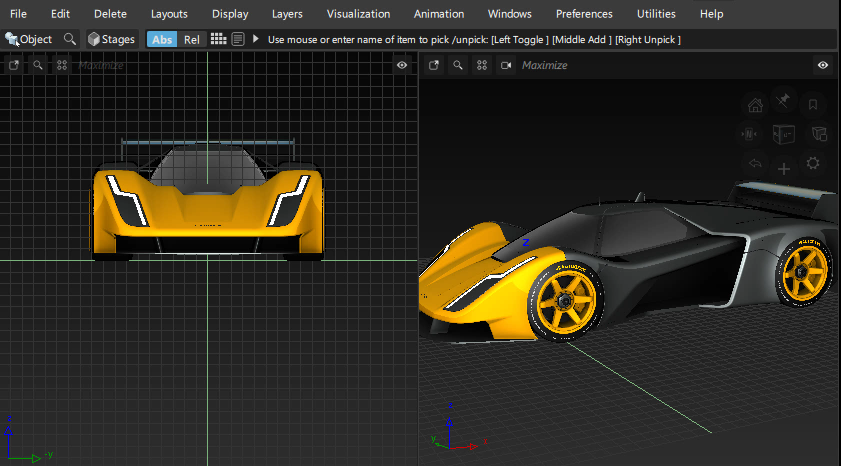
Two Panes Stacked
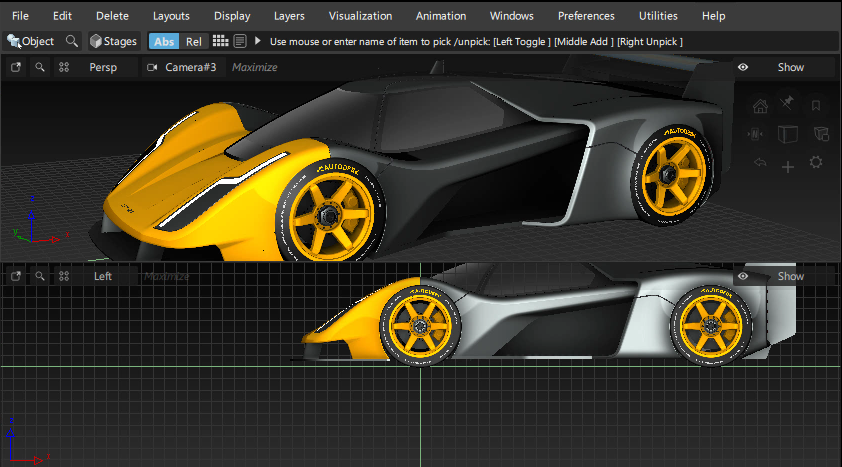
Four Panes
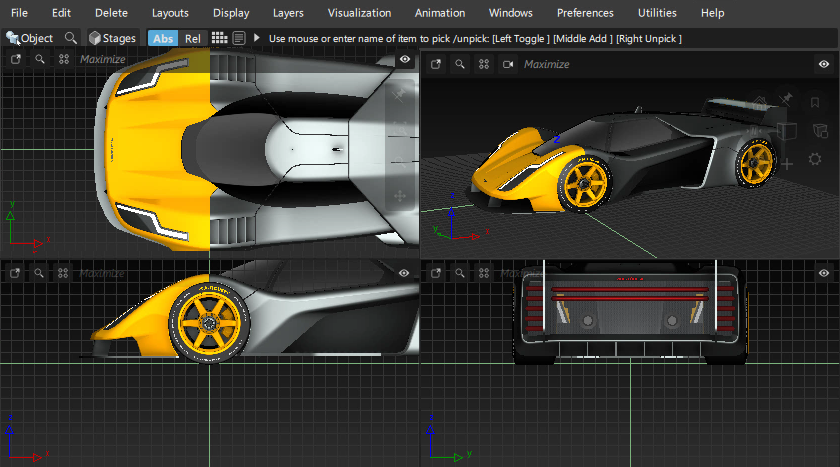
Use the F9 hotkey to toggle between one view window and four.
New Floating Window
Selecting this creates a 1:1 copy of the source window with a new camera. Initially the viewpoint is the same as the source camera, but it can be tumbled, zoomed, panned independently.
The floating window can be moved outside the Alias window or on to a second screen, making it useful for collaboration and presentations.
Title Bar
Displays or hides the title bar of modeling and SBD windows.
Toggle Title Bar Options
Toggle Type
All Windows – Displays or hides the title bar in all windows.
Current Windows – Displays or hides the title bar in the current (active) window only.
Window Sync
Turns synchronization of movement between the open view windows on or off. Window synchronization is turned on by default.
Choose Window Sync to synchronize all your orthographic canvas planes so that whenever you change the view of one image plane (by dollying, tracking, zooming), the views of all other image planes automatically adjust.
Full Screen
Displays the model and background over the entire screen without any interface elements.
Marking menus, hotkeys and camera manipulations using Alt - Shift can still be used in borderless display mode.
Press the Esc key to return to the conventional display.
The option box allows you to turn on or off selected parts of the interface.
Full Screen Display Options
Hide Main Menu UI
This option is on by default. Menus, title bar, promptline and layer bar are hidden.
Hide Title Bar
This option is on by default. The window title bar is hidden, as are the individual view window title bars.
Hide Palette/Shelf
This option is on by default. The tool palette, shelves, control panel and title bar are hidden.
Hide Control Panel
This option is On by default. The Control Panel is hidden.
